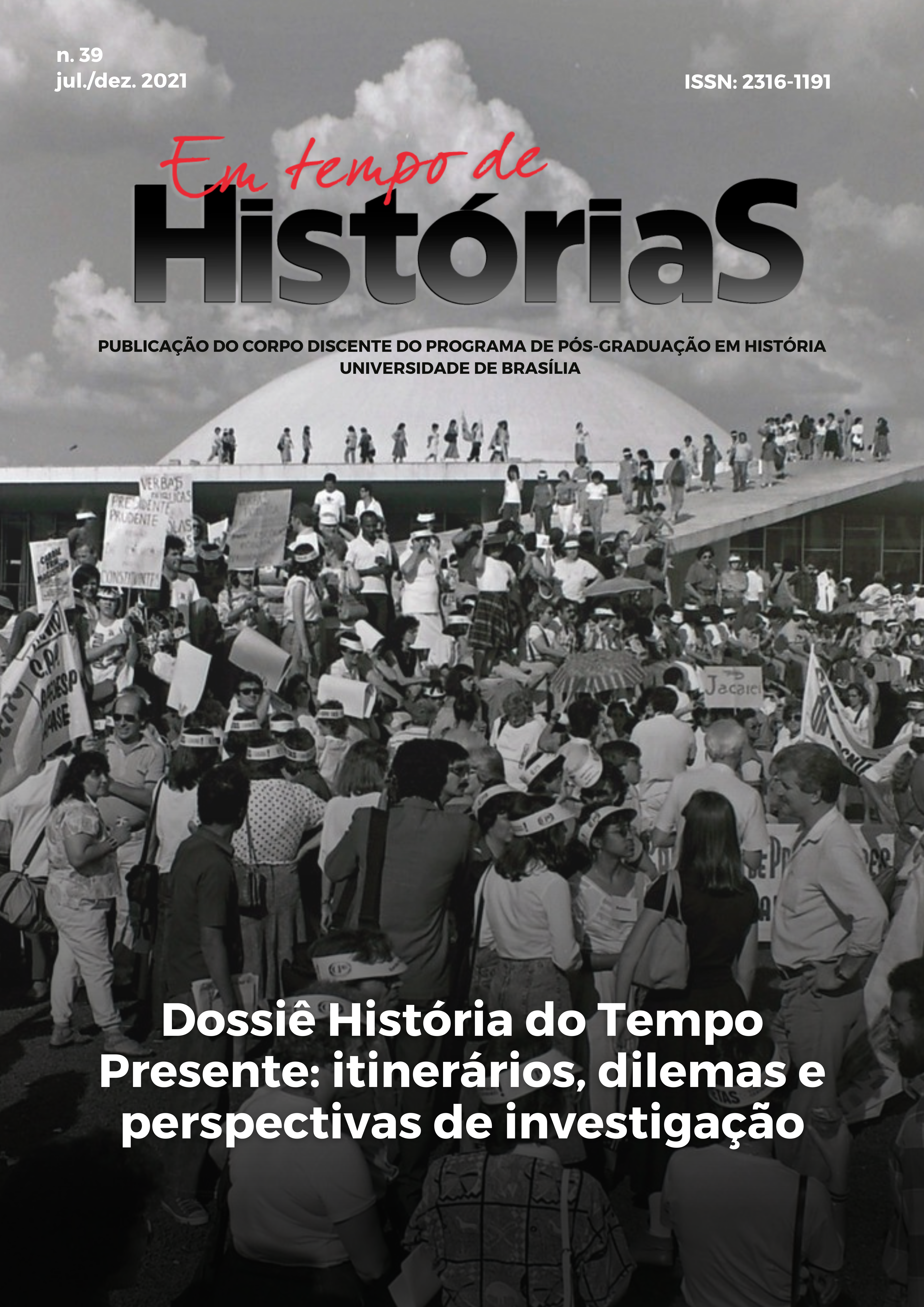Cultural identities in post-modernity, modern and presentist historicity regimes and the History of the Present Time
DOI:
https://doi.org/10.26512/emtempos.v1i39.39527Keywords:
Cultural Identity. Historicity Regime. History of the Present Time.Abstract
This article seeks to investigate the process of decentralization of cultural identities produced from modernity to postmodern today, according to Stuart Hall's approach and its relationship with the way we see, understand and study our time. With the help of the concept of historicity regime in the approximation of individual and cultural experiences with the collective experiences of history, time and society in modernity and postmodernity, I seek a new perspective of interdisciplinary investigation of the History of Present Time in the approximation with the sociological study of cultural identities. I still seek to assess these issues in the globalized and liquid present from the perspective of the philosopher Zygmunt Bauman.
Downloads
References
BAUMAN, Zygmunt. Vida para o consumo: a transformação das pessoas em mercadoria. Rio de Janeiro: Jorge Zahar, 2008.
BAUMAN, Zygmunt. Modernidade Líquida. Rio de Janeiro: Zahar Editores, 2001.
BAUMAN, Zygmunt. O mal-estar da pós-modernidade. Rio de Janeiro: Zahar Ed., 1998.
BERBER, Bevernage. História, memória e violência de Estado: tempo e justiça. Serra: Editora Milfontes/ Mariana: SBTHH, 2018.
Downloads
Published
How to Cite
Issue
Section
License
Copyright (c) 2021 Em Tempo de Histórias

This work is licensed under a Creative Commons Attribution-NonCommercial 4.0 International License.
Autores que publicam nesta revista concordam com os seguintes termos:
- Autores mantém os direitos autorais e concedem à revista o direito de primeira publicação, sendo o trabalho simultaneamente licenciado sob a Creative Commons Attribution License , licença que permite que outros remixem, adaptem e criem a partir do seu trabalho para fins não comerciais, e embora os novos trabalhos tenham de lhe atribuir o devido crédito e não possam ser usados para fins comerciais, os usuários não têm de licenciar esses trabalhos derivados sob os mesmos termos.
- Autores têm autorização para assumir contratos adicionais separadamente, para distribuição não-exclusiva da versão do trabalho publicada nesta revista (ex.: publicar em repositório institucional ou como capítulo de livro), com reconhecimento de autoria e publicação inicial nesta revista.
- Autores têm permissão e são estimulados a publicar e distribuir seu trabalho online (ex.: em repositórios institucionais ou na sua página pessoal) a qualquer ponto antes ou durante o processo editorial, já que isso pode gerar alterações produtivas, bem como aumentar o impacto e a citação do trabalho publicado (Veja O Efeito do Acesso Livre).













